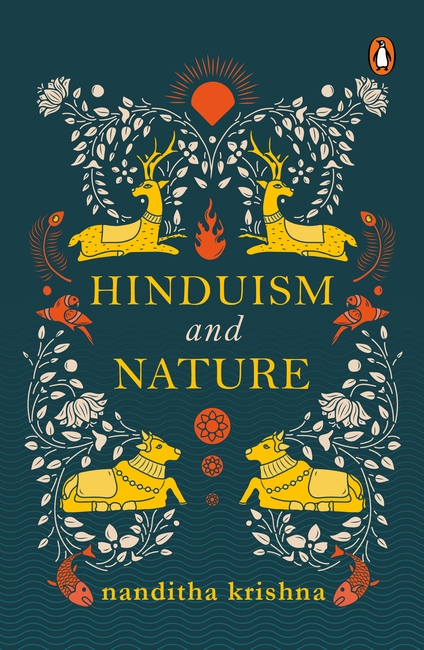
The basis of Hinduism is dharma or righteousness, incorporating duty, cosmic law and justice. Five thousand years ago, the Vedas showed a clear appreciation of the natural world and its ecology, the importance of the environment and the management of natural resources.
Hinduism and Nature delves into the religion’s deep respect for all life forms, the forests and trees, rivers and lakes, animals and mountains, which are all manifestations of divinity. Nature is venerated all over India: every village has a sacred grove, every temple a sacred garden and sacred tree. In this fascinating book, scholar and environmentalist Nanditha Krishna explores both the classical and the tribal traditions that venerated nature, and convincingly argues that we can save the environment only by seeking answers in ancient wisdom.
Imprint: India Penguin
Published: Dec/2017
ISBN: 9780143427834
Length : 264 Pages
MRP : ₹250.00
There is a close symbiotic relationship between Hinduism and Nature. The basis of Hindu culture is dharma or righteousness, incorporating duty, cosmic law and justice. Every person must act for the general welfare of the earth, humanity, all creation and all aspects of life. Dharma is meant for the well-being of all living creatures. The verses […]
